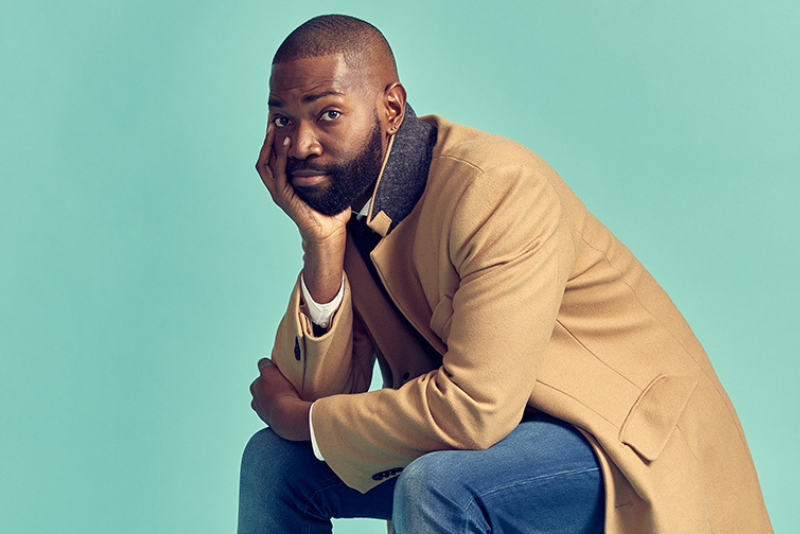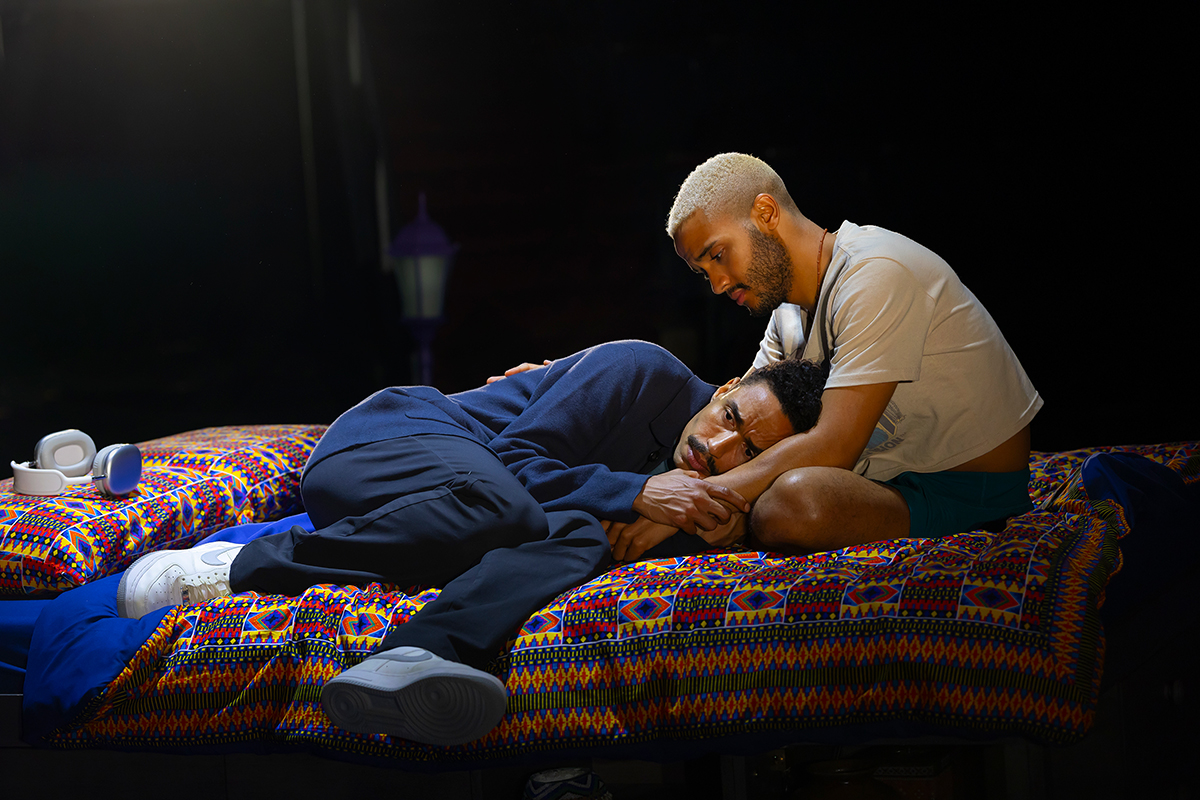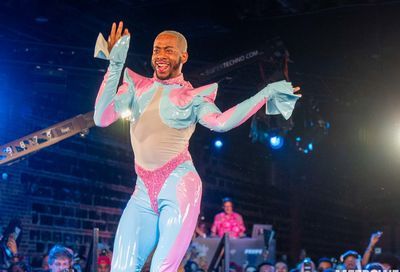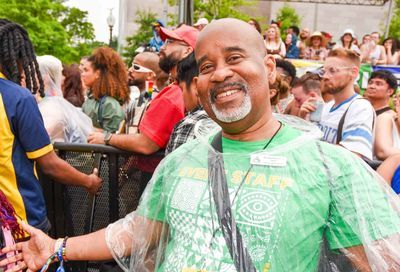‘Unknown Soldier’ Makes for a Soaring Romance (Review)
Arena's new musical "Unknown Soldier" excavates memory and history to poignantly portray a love gone but not forgotten.

Some lives upended by war are never set right again, and some broken hearts never heal, as the original musical Unknown Soldier, by Daniel Goldstein and the late Michael Friedman, so poignantly depicts.
A gripping mystery sparked by an ages-old news photograph, the show marks its D.C. premiere at Arena Stage in a new production staged with dexterity by Trip Cullman.
The photograph in question — of an unidentified U.S. soldier home from World War I, pictured with a possible young lady sweetheart — first sparks the imagination of 12-year-old Ellen Rabinowitz (Riglee Ruth Bryson) in 1973, preparing a report on the Great War in her grandma’s kitchen in upstate Troy, New York.
Thirty years later, Ellen (Lora Lee Gayer), now an Ob-Gyn in Manhattan, suddenly stuck in Troy trying to unload her recently deceased grandma’s house full of memories, rediscovers the photo, clipped from a magazine. “Has Unknown Soldier Found True Love?” reads the photo caption, referring to the soldier’s lady companion. The lingering mystery reignites Ellen’s flame of curiosity.
“I wanna know what happened,” she sings, certain that the “true love” in the photo is her grandma as a much younger woman, but uncertain of whether the soldier is, in fact, her grandfather. Ellen only has a hunch that the answers she finds might lead her closer to understanding her grandma Lucy (Judy Kuhn), who raised her, and whom she recalls as painfully difficult and unstable.

Goldstein’s book, and the lyrics by Friedman and Goldstein, express Ellen’s aims and emotions in plain, conversational language riding the loping melodies by Friedman. “I wanna know what happened,” she pleads, not just to know her grandma better, but so she might gain insight into her own cloudy history, and thus, herself. “‘Cause I’m starting to feel that I have the wrong story/I feel like I’m missing a page.”
As adult Ellen, Gayer, her voice lovely in tone, rises above the somewhat repetitive score to create a really intricate picture of a person stuck in their own malaise, searching for something to guide them free. Ellen knows so little about her grandma, except for the rough times they had when she was a kid, and knows even less about her own mother who died when Ellen was an infant.
Solving the mystery of the unknown soldier in the photo has to feel absolutely necessary to her, and Gayer conveys the yearning at the heart of Ellen’s quest. Gayer also pairs persuasively with Adam Chanler-Berat, endearing as Cornell University research librarian Andrew Hoffman, whom Ellen contacts for help tracking down details about the soldier and sweetheart in the photo.
Research blossoms into romance, for at least one of them. From the pair’s first duet, the amusing “The Worst Town in New York,” through the sweet, if a tad saccharine, solo number “Andrew’s Story,” their alternately flirtatious and withholding rapport registers as something modern and real.
By contrast, the WWI-era romance of the Unknown Soldier, told as flashbacks revealed through Andrew’s research feels like good old-fashioned romance, with a nagging undertone of tragedy. A witness to awful horrors, the soldier is something of a walking tragedy himself.
A 25-year-old recently returned from the War in Europe, he’s found in Grand Central Station, suffering amnesia, looking for the sweetheart he left behind, but unable to remember her. Eventually, he’s taken to a mental hospital, where the doctors dub him Francis Grand.
Friedman and Goldstein give soldier boy Francis beautiful songs to sing, which Perry Sherman, quietly elucidating the soldier’s confusion, delivers capably. Likewise, the soldier’s possible sweetheart, young Lucy, sings forcefully of her dreams of love, with Kerstin Anderson’s soaring lyric soprano capturing the character’s bright-eyed hopefulness, and later, her pain.
Anderson etches a devastating portrait of young Lucy’s grief that stands as a tearful complement to the textured take of Judy Kuhn, portraying Lucy in her later years as grandma to precocious tween Ellen, very well-played by Bryson.
Cullman does so well guiding his cast through the show’s sharp tonal shifts, from past to present, romance to tragedy, that the production’s less successful shifts in tone truly stand out. The purportedly delightful “Where in the World,” led by the soldier’s Doctor (Nehal Joshi) falls flat, as do a few other unfunny slapstick interludes with the doctor and ensemble. This story doesn’t lend itself to belly laughs.
A more serious sequence, in the latter half, also falters, an eleven o’clock Francis and Lucy duet actually called “The Clock,” that feels extraneous at that point, or, as stated, a bit repetitive, as if the story is stuck in time.
Time is a major sticking point. The story’s accounting of time doesn’t add up, if we’re parsing what years Lucy met the soldier (c. 1918-19), then had her daughter (c. 1919-20), who died shortly after giving birth to Ellen, who is 12 in 1973.
Trying to figure it all out, you might end up as confused as Francis Grand, or you might be too swept away by the romance and history to notice.
Unknown Soldier (★★★☆☆) runs through May 5 at Arena Stage, 1101 6th St. SW. Tickets are $56 to $95 with discount options available. Call 202-488-3300, or visit www.arenastage.org.
Support Metro Weekly’s Journalism
These are challenging times for news organizations. And yet it’s crucial we stay active and provide vital resources and information to both our local readers and the world. So won’t you please take a moment and consider supporting Metro Weekly with a membership? For as little as $5 a month, you can help ensure Metro Weekly magazine and MetroWeekly.com remain free, viable resources as we provide the best, most diverse, culturally-resonant LGBTQ coverage in both the D.C. region and around the world. Memberships come with exclusive perks and discounts, your own personal digital delivery of each week’s magazine (and an archive), access to our Member's Lounge when it launches this fall, and exclusive members-only items like Metro Weekly Membership Mugs and Tote Bags! Check out all our membership levels here and please join us today!



























You must be logged in to post a comment.